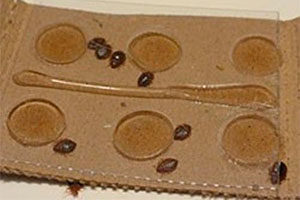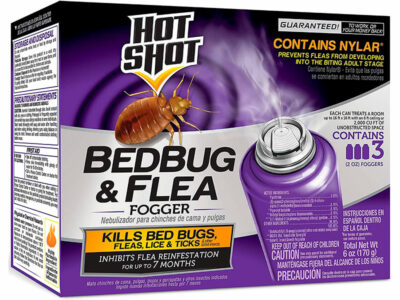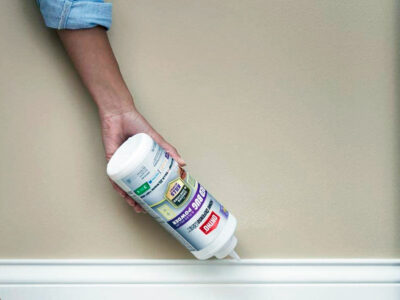Looking for a natural way to combat bed bugs without harsh chemicals? Essential oils offer a safe, pleasant-smelling alternative that can be effective when used correctly. From repelling these persistent pests to killing them on contact, certain essential oils contain powerful compounds that disrupt bed bugs’ nervous systems and damage their protective outer layers. This comprehensive guide explores the most effective essential oils for bed bug control and provides step-by-step instructions for creating your own DIY solutions.
Top Essential Oils for Bed Bugs

Most Effective

Best Repellent
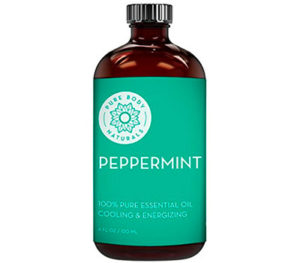
Fast-Acting
- How Essential Oils Work Against Bed Bugs
- Tea Tree Oil: The Most Effective Essential Oil for Bed Bugs
- Lavender Oil: Best for Repelling and Killing Bed Bugs
- Other Effective Essential Oils for Bed Bug Control
- Powerful Essential Oil Combinations
- Essential Oil Application Methods
- Essential Oil Safety Precautions
- Essential Oil Effectiveness Comparison
- Tips for Maximum Effectiveness
- Conclusion
- Frequently Asked Questions
How Essential Oils Work Against Bed Bugs
Essential oils are concentrated plant extracts that contain volatile compounds with various biological properties. When it comes to bed bug control, essential oils work in several ways:
Contact Killing
Many essential oils contain compounds that are toxic to bed bugs. These substances can penetrate the insect’s exoskeleton, disrupt their nervous system, and lead to paralysis and death when applied directly.
Repellent Action
Bed bugs are attracted to carbon dioxide and human blood scents. Strong-smelling essential oils can mask these attractants and create an environment that bed bugs prefer to avoid.
Respiratory Disruption
Certain oils create vapors that irritate bed bugs’ respiratory systems, making areas treated with these oils inhospitable to the pests.
While essential oils can be effective, they generally work best for smaller infestations or as part of a comprehensive approach to bed bug control. Severe infestations may require additional treatment methods.
Tea Tree Oil: The Most Effective Essential Oil for Bed Bugs
Tea tree oil (Melaleuca alternifolia) is widely recognized as one of the most powerful essential oils for combating bed bugs. Research entomologists have found it to be highly effective against these resilient pests.
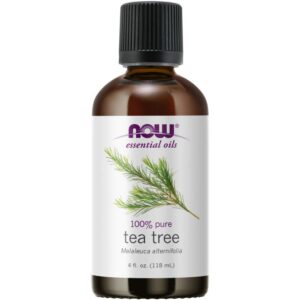
How It Works
- Contains powerful terpenes that penetrate the bed bug’s exoskeleton
- Attacks the insect’s central nervous system causing paralysis
- Creates a micro-active environment that kills bed bugs within minutes of contact
- Disrupts bed bugs’ ability to locate human hosts by masking carbon dioxide scent
Best Tea Tree Oil Products
- NOW Foods 100% Pure Tea Tree Essential Oil – Highest quality pure extract
- Sun Organic 100% Pure Tea Tree Oil – Affordable option with included dropper
- Ola Prima Tea Tree 100% Pure Essential Oil – Available in larger volumes for extensive treatments
Tea Tree Oil Spray Recipe
Tea tree oil can be problematic for humans when it comes into contact with the skin in its undiluted state. Take care to avoid getting undiluted tea tree oil on your hands. Wearing dishwashing gloves or disposable plastic gloves when making the solution is a wise choice.
Lavender Oil: Best for Repelling and Killing Bed Bugs
Lavender oil offers dual benefits in your battle against bed bugs. Not only does it help kill these pests when applied directly, but it also serves as an excellent repellent due to its strong fragrance that bed bugs find unpleasant.

Active Compounds
Lavender contains linalool and linalyl acetate, which can kill bed bugs through contact while also acting as a repellent. For best results, use pure L. angustifolia (English lavender), which is most effective against bed bugs.
Multiple Application Methods
- Direct Spray: Mix lavender oil with water for direct application
- Laundry Additive: Add a few drops to the final rinse cycle when washing bedding
- Body Application: Use lavender-based body lotion to deter nighttime bites
- Sachets: Place lavender sachets around your bed and in luggage when traveling
Lavender Oil Spray Recipe
Homemade Lavender Oil
You can make a gentler lavender oil at home through infusion:
- Start with dried lavender flowers
- Remove woody portions of stems
- Crush the lavender and place in a clean jar
- Cover with a light carrier oil like almond oil
- Close tightly and allow to sit for 4-6 weeks
- Store in a cool, dark place
For DIY sprays, use 25-30 drops of this infused oil per ounce of water.
Other Effective Essential Oils for Bed Bug Control
While tea tree and lavender oils are the most well-documented essential oils for bed bug control, several other oils have shown promising results:
Peppermint Oil

Contains menthol which is toxic to bed bugs and creates a strong repellent effect. The cooling sensation is unpleasant for bed bugs, causing them to avoid treated areas.
- Strong repellent properties
- Fresh, clean scent
- Moderate contact killing ability
- Works well in combination with other oils
Eucalyptus Oil
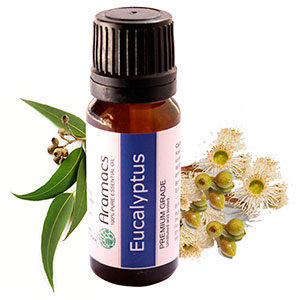
Contains eucalyptol (1,8-cineole) which has strong insecticidal properties. Eucalyptus oil can penetrate the bed bug’s waxy outer layer and cause dehydration.
- Effective contact killer
- Strong respiratory irritant for bugs
- Long-lasting effect
- Refreshing scent
Clove Oil
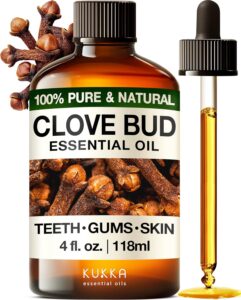
Contains eugenol, a powerful compound that disrupts bed bugs’ nervous systems. Research shows clove oil to be among the most lethal essential oils for bed bugs.
- High contact killing rate
- Works on eggs and adults
- Strong scent deters bugs
- Effective in low concentrations
Additional Effective Oils
- Lemongrass Oil: Contains citral and geraniol, which repel and kill bed bugs
- Thyme Oil: Contains thymol, highly toxic to bed bugs even in low concentrations
- Cedarwood Oil: Traditional insect repellent that disrupts bed bugs’ respiratory systems
- Cinnamon Oil: Contains cinnamaldehyde which is highly toxic to bed bugs
- Rosemary Oil: Contains compounds that attack bed bugs’ nervous systems
- Neem Oil: Works as a growth regulator that prevents bed bugs from reproducing
Powerful Essential Oil Combinations
While individual essential oils can be effective against bed bugs, combining multiple oils often creates more potent solutions that address different aspects of bed bug control. Here are some powerful combinations:
| Combination | Recipe | Benefits | Best For |
|---|---|---|---|
| Triple Threat Spray | 10 drops each of tea tree, lavender, and peppermint oils with 2 cups water and 1 tbsp dish soap | Combines killing power with repellent effects | Comprehensive treatment |
| Bed Bug Barrier | 15 drops tea tree oil, 15 drops clove oil, 1 cup water, 1 tbsp dish soap | Maximum killing power for severe infestations | Direct application to visible bed bugs |
| Night Protection | 15 drops lavender, 10 drops cedarwood, 5 drops eucalyptus, 2 cups water | Strong repellent effect with pleasant scent | Bedding and sleeping areas |
| Travel Guard | 10 drops each of lavender, peppermint, and lemongrass oils with 1 cup water | Portable protection with lasting repellent effect | Luggage and hotel bedding |
When creating combination formulas, don’t exceed a total of 30-40 drops of essential oil per 2 cups of water to avoid potential skin irritation or damage to fabrics.
Essential Oil Application Methods
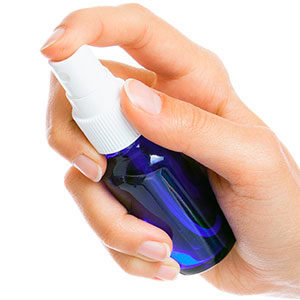
The effectiveness of essential oils against bed bugs depends greatly on how they’re applied. Here are the most effective application methods:
Target Areas for Essential Oil Application
Bed Components
- Mattress seams, buttons, tears, and folds
- Box spring edges and underneath the dust cover
- Bed frame joints and crevices
- Headboard, especially if tufted or with decorative elements
Room Features
- Baseboards and wall/floor junctions
- Nightstand drawers and undersides
- Dresser drawer joints and backs
- Carpet edges and under area rugs
- Behind picture frames and wall décor
Travel Protection
- Luggage interiors before and after trips
- Hotel bed frames and mattress edges
- Laundry bags when returning from trips
- Sachets for suitcases and backpacks
For maximum effectiveness, treat all potential hiding spots simultaneously and repeat applications every 2-3 days for at least two weeks. Bed bugs can hide in tiny cracks and may require multiple treatments to reach all individuals in an infestation.
Essential Oil Safety Precautions
While essential oils are natural products, they are highly concentrated and can cause adverse reactions if not used properly. Always follow these safety guidelines:
Skin Contact
Never apply undiluted essential oils directly to your skin. Always use proper dilution ratios with a carrier oil (for topical applications) or water and soap (for spray applications). Perform a patch test on a small area of skin before widespread use.
Pets & Children
Many essential oils that are safe for humans can be toxic to pets, especially cats. Keep treated areas inaccessible to pets and children until completely dry. Use lower concentrations in homes with pets or young children.
Pregnancy & Health Conditions
Some essential oils may not be safe during pregnancy or for people with certain medical conditions. Consult with a healthcare provider before using essential oils if you are pregnant, nursing, or have health concerns.
- Always wear gloves when handling pure essential oils
- Store oils in dark glass bottles away from direct sunlight
- Keep oils in childproof locations
- Test on inconspicuous areas of fabrics before widespread application
- Ensure good ventilation when applying essential oil sprays
- Using essential oils at full strength without dilution
- Applying oils directly to sensitive areas or mucous membranes
- Ingesting essential oils (they are for topical/aromatic use only)
- Overusing oils, which can lead to sensitization
- Relying solely on essential oils for severe infestations
Essential Oil Effectiveness Comparison
Not all essential oils are equally effective against bed bugs. This comparison will help you choose the best options based on your specific needs:
| Essential Oil | Killing Power | Repellent Effect | Residual Duration | Scent Strength | Best For |
|---|---|---|---|---|---|
| Tea Tree Oil | Very High | Medium | 3-5 days | Strong, medicinal | Direct treatment of infestations |
| Lavender Oil | Medium | High | 2-4 days | Pleasant, floral | Prevention and nighttime protection |
| Peppermint Oil | Medium | Very High | 2-3 days | Strong, minty | Creating barrier protections |
| Clove Oil | High | Medium | 4-6 days | Strong, spicy | Killing resistant bed bugs |
| Eucalyptus Oil | Medium-High | Medium | 3-4 days | Strong, medicinal | Treating cracks and crevices |
| Thyme Oil | High | Low | 3-5 days | Herbal, pungent | Direct application to bugs |
| Lemongrass Oil | Medium | High | 2-3 days | Citrusy, fresh | Repelling bed bugs in clean areas |
| Cedarwood Oil | Medium | Medium-High | 5-7 days | Woody, warm | Long-lasting protection |
| Neem Oil | Low | Medium | 6-8 days | Strong, nutty | Disrupting reproduction |
Tips for Maximum Effectiveness
To get the most out of essential oils for bed bug control, follow these expert recommendations:
Enhanced Application Method
For severe infestations, try this enhanced application method:
- Steam treat infested areas first to flush out hidden bed bugs
- Immediately apply essential oil spray while surfaces are still warm
- The heat helps the essential oils penetrate deeper into cracks and crevices
- Reapply essential oil spray after 24 hours
- Place cotton balls soaked in essential oil solution in strategic locations
This method combines heat treatment with essential oils for maximum effectiveness.
Conclusion
Essential oils offer a natural, pleasant-smelling alternative to chemical pesticides for controlling bed bugs. While they may not completely eliminate severe infestations on their own, they can be highly effective as part of an integrated pest management approach, particularly for smaller infestations or preventative measures.
Tea tree oil and lavender oil stand out as the most effective essential oils for bed bug control, with tea tree excelling at killing bed bugs on contact and lavender providing excellent repellent properties. For maximum effectiveness, consider using combinations of essential oils that target bed bugs through multiple mechanisms.
Remember that consistency is key—regular applications over a period of 2-3 weeks are typically necessary to address all stages of the bed bug life cycle. With proper application and realistic expectations, essential oils can be a valuable tool in your arsenal against these persistent pests, helping you reclaim your home using natural solutions that are gentler on both your family and the environment.
Frequently Asked Questions
Do essential oils really kill bed bugs?
Yes, certain essential oils can kill bed bugs when applied correctly. Research has shown that tea tree, clove, thyme, and eucalyptus oils are particularly effective at killing bed bugs on contact due to their ability to penetrate the insect’s exoskeleton and disrupt their nervous system. However, essential oils generally work best as contact killers rather than residual treatments, making them most effective for smaller infestations or as part of a comprehensive treatment approach.
How long do essential oil treatments last?
The effectiveness of essential oil treatments typically lasts 2-7 days, depending on the specific oil used. Cedarwood and neem oils tend to have longer-lasting effects (5-8 days), while most other oils need to be reapplied every 2-4 days. The oils gradually lose potency as they evaporate and oxidize. For ongoing protection, regular reapplication is necessary, especially in areas with high bed bug activity.
Can essential oils eliminate a severe bed bug infestation?
Essential oils alone are unlikely to completely eliminate a severe bed bug infestation. While they can be effective at killing bed bugs on contact and repelling them from treated areas, severe infestations typically require a multi-faceted approach. For best results, combine essential oil treatments with thorough cleaning, vacuuming, heat treatment (washing/drying items at high temperatures), and possibly professional intervention. Essential oils work best for minor to moderate infestations or as preventative measures.
Are essential oils safe to use on mattresses?
Yes, properly diluted essential oils are generally safe to use on mattresses, but always test a small, inconspicuous area first to ensure the solution doesn’t stain or damage the fabric. Use a light application that dampens but doesn’t soak the mattress, as excess moisture can lead to mold or mildew. Allow the mattress to dry completely before putting sheets back on. For memory foam mattresses, use even lighter applications as these materials can be more sensitive to liquids.
Can I use essential oils if I have pets?
Exercise caution when using essential oils in homes with pets, particularly cats. Cats lack certain liver enzymes needed to metabolize many essential oil compounds, making them especially sensitive. Dogs can also be affected by certain oils. If you have pets, consider using pet-safe alternatives like lavender (in very diluted forms) and avoid tea tree oil entirely around cats. Always keep pets away from treated areas until completely dry, ensure good ventilation, and consult with a veterinarian if you’re unsure about a particular oil’s safety.
About the author
Inga Cryton is the researcher and creator behind PestKill.org, a site dedicated to providing well-researched pest management information. Through thorough research and consultation of reliable sources, she shares effective and environmentally responsible pest control strategies. Have a question or topic suggestion? Get in touch.
